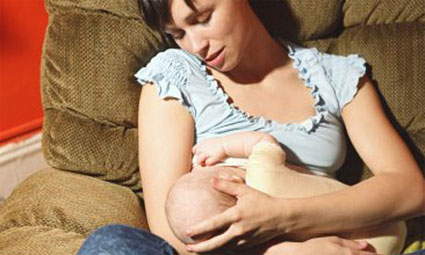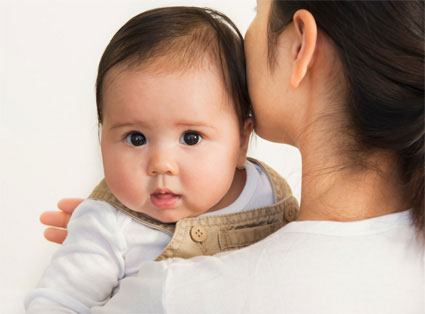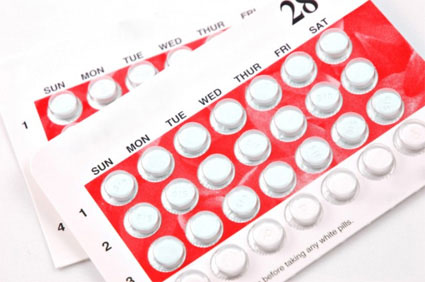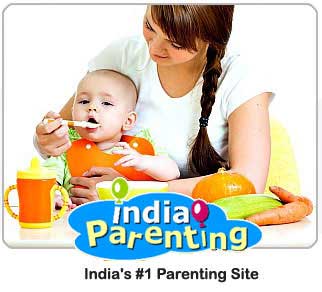Nothing can be compared to mother’s milk as it is the best for a baby. But if the mother is unfortunately a carrier of certain infections she cannot breastfeed her child. Let us have a look at the infections which can be transferred to a baby through breastmilk. For an infant, mother’s milk is the best source of nutrition which is easily digested. Breastmilk develops immunity in an infant. Breastfeeding does result a healthier body for a nursing mother. It is recommended that an infant should be breastfed within an hour of birth. Various medical studies reportedly advocate breastfeeding to be developing a good immune system for the baby, as well as benefit nursing mother’s health. In spite of these benefits, the fact that certain infections could be passed on to the infant during breastfeeding is a matter of concern. Breastmilk is indeed a source of nutrition. However, a nursing mother through breastfeeding also passes on to the baby, the medications she undergoes. Physicians or doctors generally prescribe medicines while considering whether the mother is breastfeeding or not. In this articleInfections Transmitted through Breastfeeding(Human Immunodeficiency Virus) HIVWest Nile Virus (WNV)Severe Acute Respiratory Syndrome (SARS)Cytomegalovirus (CMV)Other Diseases Transmitted through BreastmilkInfections Transmitted through Breastfeeding There are certain diseases or illness which a baby can acquire from a nursing mother. Common illnesses such as flu, colds or diarrhoea are not passed through breastmilk. Even if a mother is ill, her breastmilk contains antibodies that avoid the risk of the same sickness in the baby as well. (Human Immunodeficiency Virus) HIV Certain diseases that a nursing mother suffers can easily infect the infant. The medical community in U.S. considers various studies to indicate that mothers, who are carriers of HIV, pose the risk of infecting the baby through breast feed. The medications for the treatment can cause harmful effects on the baby. West Nile Virus (WNV) If a nursing mother is infected with the West Nile Virus, a physician’s guidance should be taken whether to breastfeed the baby or not. Although a viral disease, the scenario for the disease differs as with other diseases. In majority of the medical cases, even if the baby gets infected, he or she does not suffer from any illness and becomes immune. In such a condition, breastfeeding is usually advisable for developing an immune system. Severe Acute Respiratory Syndrome (SARS) SARS is a viral respiratory illness. An infected mother is advised to stop breastfeeding her baby, so as to protect the infant from the disease. Being a viral disease, there are no chances for the baby to develop any immunity for the disease. Generally, the disease makes the infected mother sick and weak to nurse the baby. Cytomegalovirus (CMV) Mothers infected with latent cytomegalovirus (CMV) pose the risk of infecting the baby upon breast feed. Other Diseases Transmitted through Breastmilk Tuberculosis can be passed from a mother to a baby. It is advisable for the mother to breastfeed upon proper medication and complete recovery. A baby will be infected by Hepatitis C if exposed to cracked or bleeding nipples or through contact with blood. Yeast or fungal infections are also common infections being passed from diabetic mothers. These infections could be detected in a baby on the visibility of milky white spots or coating on the inside of the mouth, or a diaper rash. Diseases such as chicken pox, herpes simplex, Lyme disease pass on the infections through breastmilk. It is considered safe and advisable to breastfeed after the treatment for the disease. Breastmilk is a natural source of nutrition that has nature’s way of creating immunity for the baby. Breast feed in its own way develops antibodies within the baby’s body and protects from diseases. However, when a mother is infected with any disease, it is important for a mother to be aware about the disease. A physician’s advice should be taken before breastfeeding to avoid any complications in the baby.Can common cold or cough get transmitted to baby through breastmilk? When is it not safe to breastfeed a baby? What are the other feeding options when it is not possible to breastfeed a baby? Discuss here.
 Nothing can be compared to mother’s milk as it is the best for a baby. But if the mother is unfortunately a carrier of certain infections she cannot breastfeed her child. Let us have a look at the infections which can be transferred to a baby through breastmilk.
Nothing can be compared to mother’s milk as it is the best for a baby. But if the mother is unfortunately a carrier of certain infections she cannot breastfeed her child. Let us have a look at the infections which can be transferred to a baby through breastmilk. For an infant, mother’s milk is the best source of nutrition which is easily digested. Breastmilk develops immunity in an infant. Breastfeeding does result a healthier body for a nursing mother. It is recommended that an infant should be breastfed within an hour of birth.
Various medical studies reportedly advocate breastfeeding to be developing a good immune system for the baby, as well as benefit nursing mother’s health. In spite of these benefits, the fact that certain infections could be passed on to the infant during breastfeeding is a matter of concern.
Breastmilk is indeed a source of nutrition. However, a nursing mother through breastfeeding also passes on to the baby, the medications she undergoes. Physicians or doctors generally prescribe medicines while considering whether the mother is breastfeeding or not.
Infections Transmitted through Breastfeeding
There are certain diseases or illness which a baby can acquire from a nursing mother. Common illnesses such as flu, colds or diarrhoea are not passed through breastmilk. Even if a mother is ill, her breastmilk contains antibodies that avoid the risk of the same sickness in the baby as well.
(Human Immunodeficiency Virus) HIV
Certain diseases that a nursing mother suffers can easily infect the infant. The medical community in U.S. considers various studies to indicate that mothers, who are carriers of HIV, pose the risk of infecting the baby through breast feed. The medications for the treatment can cause harmful effects on the baby.
West Nile Virus (WNV)
If a nursing mother is infected with the West Nile Virus, a physician’s guidance should be taken whether to breastfeed the baby or not. Although a viral disease, the scenario for the disease differs as with other diseases. In majority of the medical cases, even if the baby gets infected, he or she does not suffer from any illness and becomes immune. In such a condition, breastfeeding is usually advisable for developing an immune system.
Severe Acute Respiratory Syndrome (SARS)
SARS is a viral respiratory illness. An infected mother is advised to stop breastfeeding her baby, so as to protect the infant from the disease. Being a viral disease, there are no chances for the baby to develop any immunity for the disease. Generally, the disease makes the infected mother sick and weak to nurse the baby.
Cytomegalovirus (CMV)
Mothers infected with latent cytomegalovirus (CMV) pose the risk of infecting the baby upon breast feed.
Other Diseases Transmitted through Breastmilk
Tuberculosis can be passed from a mother to a baby. It is advisable for the mother to breastfeed upon proper medication and complete recovery. A baby will be infected by Hepatitis C if exposed to cracked or bleeding nipples or through contact with blood. Yeast or fungal infections are also common infections being passed from diabetic mothers. These infections could be detected in a baby on the visibility of milky white spots or coating on the inside of the mouth, or a diaper rash. Diseases such as chicken pox, herpes simplex, Lyme disease pass on the infections through breastmilk. It is considered safe and advisable to breastfeed after the treatment for the disease.
Breastmilk is a natural source of nutrition that has nature’s way of creating immunity for the baby. Breast feed in its own way develops antibodies within the baby’s body and protects from diseases. However, when a mother is infected with any disease, it is important for a mother to be aware about the disease. A physician’s advice should be taken before breastfeeding to avoid any complications in the baby.
Can common cold or cough get transmitted to baby through breastmilk? When is it not safe to breastfeed a baby? What are the other feeding options when it is not possible to breastfeed a baby? Discuss here. 











 Nothing can be compared to mother’s milk as it is the best for a baby. But if the mother is unfortunately a carrier of certain infections she cannot breastfeed her child. Let us have a look at the infections which can be transferred to a baby through breastmilk.
Nothing can be compared to mother’s milk as it is the best for a baby. But if the mother is unfortunately a carrier of certain infections she cannot breastfeed her child. Let us have a look at the infections which can be transferred to a baby through breastmilk. 

















